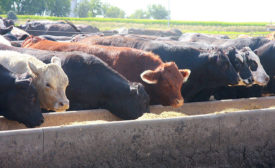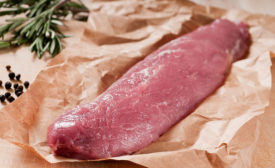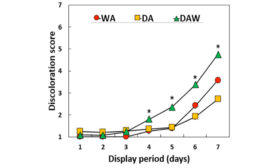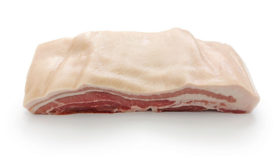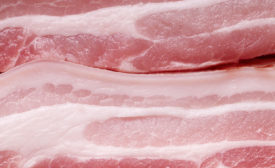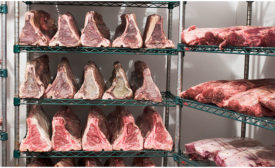Home » meat science review
Articles Tagged with ''meat science review''
Show Preview
Where history, tradition and science 'meat'
Read More
Meat Science Review
Does feeding RFMDGS decrease beef quality?
The effects of reduced-fat modified distillers grains with solubles (RFMDGS) in finishing diets of feedlot steers on fresh and processed beef quality.
Read More
Meat Science Review
Determining quality of steak: The human brain doesn’t lie
Novel MRI technique could revolutionize how meat product sensory evaluation is performed.
Read More
Meat Science Review
Pork enhancement via alkaline electrolyzed reduced water
Research aims to evaluate alkaline electrolyzed reduced water as a clean-label alternative to industry standard enhancement solutions of pork products.
Read More
Meat Science Review
Effects of dry aging on color and oxidation stabilities of beef loins
December 16, 2016
Meat Science Review
Definition of factors that impact fresh pork tenderness
October 11, 2016
Meat Science Review
Does native-grass grazing affect beef quality?
The effect of feeding native warm season grasses in the stocker phase on the carcass quality, meat quality and sensory attributes of beef loin steaks from grain-finished cattle.
August 17, 2016
Stay ahead of the curve. Unlock a dose of cutting-edge insights.
Receive our premium content directly to your inbox.
SIGN-UP TODAYCopyright ©2024. All Rights Reserved BNP Media.
Design, CMS, Hosting & Web Development :: ePublishing

